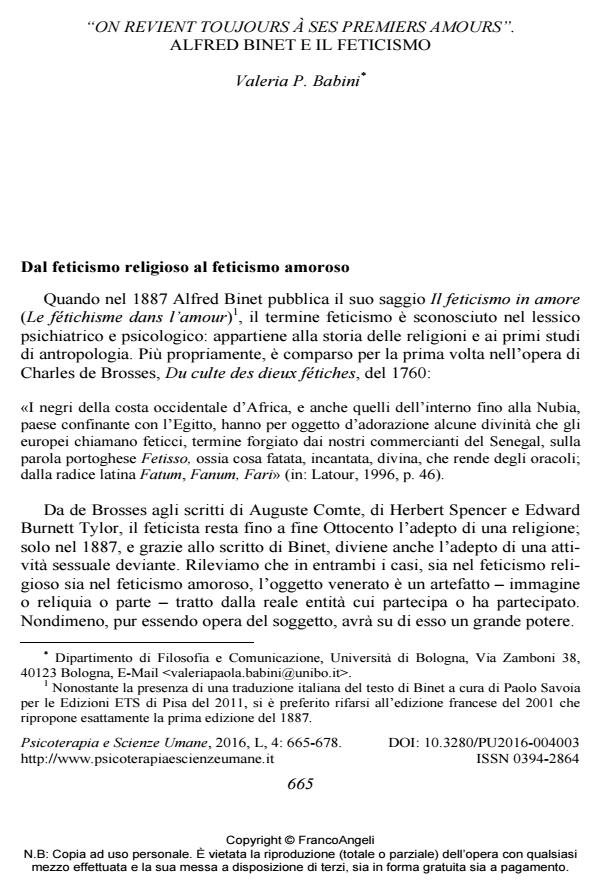"On revient toujours à ses premiers amours" [One always returns to his first love]. Alfred Binet and fetishism
Journal title PSICOTERAPIA E SCIENZE UMANE
Author/s Valeria P. Babini
Publishing Year 2016 Issue 2016/4
Language Italian Pages 14 P. 665-678 File size 76 KB
DOI 10.3280/PU2016-004003
DOI is like a bar code for intellectual property: to have more infomation
click here
Below, you can see the article first page
If you want to buy this article in PDF format, you can do it, following the instructions to buy download credits

FrancoAngeli is member of Publishers International Linking Association, Inc (PILA), a not-for-profit association which run the CrossRef service enabling links to and from online scholarly content.
Known as the inventor in 1905, together with Theodore Simon, of the first intelligence test (the Binet-Simon Scale), the French psychologist Alfred Binet (1857-1911) is seen as an inspirer of Sigmund Freud. In fact, in his 1887 essay Le fétichisme dans l’amour ("Fetishism in Love") Binet was not only the first one to describe this sexual behavior, but he also suggested an environmental explanation that, totally antithetical to the psychiatric culture of the time, attracted Freud’s interest. The epistemological background that allowed the meeting between Binet’s ideas and Freud’s thinking is seen in the "pathological method" of the French tradition, that had been embraced by Binet in psychology and, before him, by the first generation of French alienists and also by Théodule Ribot and Jean-Martin Charcot.
Keywords: Alfred Binet, fetishism, pathological method, perversions, Freud
Valeria P. Babini, "On revient toujours à ses premiers amours". Alfred Binet e il feticismo in "PSICOTERAPIA E SCIENZE UMANE" 4/2016, pp 665-678, DOI: 10.3280/PU2016-004003